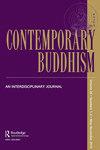Buddhism in Latin America
IF 0.1
3区 哲学
0 PHILOSOPHY
引用次数: 0
Abstract
The study of Buddhism in Latin America, which had been lacking in other Western countries, has improved considerably in the last two decades. The main reason for the initial lack of attention is the numerically modest presence of Buddhists in the region. Buddhists are greatly outnumbered by members of the Catholic church and evangelical denominations, and there is a disproportionate focus by Latin American scholars who privilege topics related to Catholicism and Pentecostalism and tend to dismiss “marginal” religions including Buddhism. Furthermore, European and North American scholars of religion are often less interested in issues related to Latin America. The present bibliography reflects this lack of attention. Due to the relatively small circle of researchers interested in the field, some authors appear more than once in the listed references. Since the topic of Buddhism in Latin America is not very popular, publishing companies are not very keen to bring such scholarship to the market. To compensate for this omission, the reader of this bibliography will find, in addition to monographs, collected works, chapters, and journal articles. a number of relevant academic theses. This variety of publication formats should not distract from the central fact that not all aspects of the issue are equaly represented by the existing literature. Some Latin American countries, as well as specific Buddhist traditions and schools, are overrepresented. While there are many publications regarding Buddhism in Brazil and—to a lesser extent—in Argentina and Mexico, available material regarding other countries is scarce. The same is true for transnational and regional studies. Among the Buddhist schools, Soka Gakkai has received the greatest attention. Zen and Tibetan Buddhism have also been studied in some detail, more so than other branches. Under these conditions, this bibliography is organized according to the main thematical focuses of the selected publications. Besides overviews of the research on Buddhism in Latin America mentioned in the the opening section, Research on Buddhism in Latin America, the sources are categorized under the primary headings Historically Orientated Studies, Geographically Orientated Studies, and Systematically Orientated Studies. In several cases, the association of a publication to one of these categorizations may be ambiguous. To add an essay about Soka Gakkai in Argentina in the first decades after its appearance under Systematically Orientated Studies, for example, is arbitrary and demands from a reader, particularly one who is interested in one specific category, to be alert for complementary suggestions in other parts of the bibliography.拉丁美洲的佛教
其他西方国家缺乏的对佛教的研究,在过去的二十年里,在拉丁美洲有了很大的进步。最初缺乏关注的主要原因是该地区佛教徒人数不多。天主教会和福音教派的成员远远超过佛教徒,拉丁美洲学者对天主教和五旬节派相关的主题给予了不成比例的关注,并倾向于忽视包括佛教在内的“边缘”宗教。此外,欧洲和北美的宗教学者往往对与拉丁美洲有关的问题不太感兴趣。目前的参考书目反映了这种缺乏重视。由于对该领域感兴趣的研究人员圈子相对较小,一些作者在列出的参考文献中出现了不止一次。由于佛教在拉丁美洲的话题不是很流行,所以出版公司不太热衷于将这种学术带到市场上。为了弥补这一遗漏,本参考书目的读者将发现,除了专著,文集,章节,和期刊文章。发表相关学术论文若干篇。这种出版形式的多样性不应分散人们对一个中心事实的关注,即现有文献并非平等地代表了问题的所有方面。一些拉丁美洲国家,以及一些特定的佛教传统和宗派,都有过多的代表。虽然在巴西有许多关于佛教的出版物,在较小程度上,在阿根廷和墨西哥也有,但关于其他国家的可用材料很少。跨国和区域研究也是如此。在佛教流派中,创价学会受到了最大的关注。禅宗和藏传佛教也有一些详细的研究,比其他分支更甚。在这些条件下,这个参考书目是根据所选出版物的主要主题重点组织的。除了开头部分“拉丁美洲佛教研究”中提到的拉丁美洲佛教研究概述外,资料来源还分为历史研究、地理研究和系统研究三个主要标题。在某些情况下,出版物与这些分类之一的关联可能是不明确的。例如,在“系统导向研究”(systematic Orientated Studies)下增加一篇关于阿根廷创价学会(Soka Gakkai)出现后最初几十年的文章,是武断的,要求读者,特别是对某一特定类别感兴趣的读者,警惕参考书目中其他部分的补充建议。
本文章由计算机程序翻译,如有差异,请以英文原文为准。
求助全文
约1分钟内获得全文
求助全文

 求助内容:
求助内容: 应助结果提醒方式:
应助结果提醒方式:


